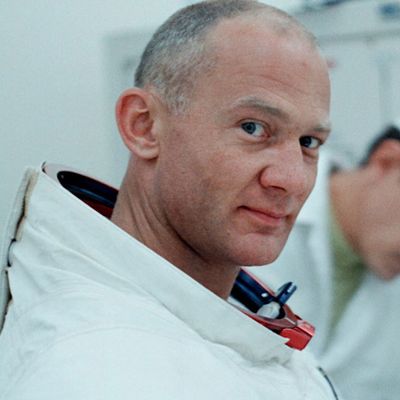
The new documentary Apollo 11, which just opened the 2019 Sundance Film Festival, is a masterful work of archival research. Working with NASA and the National Archives, the filmmakers discovered a trove of 65 mm behind-the-scenes footage of the moon landing, and combed through thousands of hours of audio recordings of NASA employees during the most tense mission of their lives. It’s a stunning re-creation of a landmark human achievement, one that brings the world of July 1969 back into the present tense — and if that’s not enough for you, rest assured that it also includes a shot where Neil Armstrong plants the American flag on the goddamned moon.
Did you not think, in the grand scheme of things, a shot of the specific moment where Neil Armstrong physically places the American flag into the moon’s surface was that necessary in a movie about the moon landing? Neither did that nice young man Damien Chazelle, and look what happened to him. Chazelle’s First Man arrived at awards season with lots of hype and plenty of shots of Old Glory on the moon, but crucially, no shots of it being placed into the moon. That wasn’t enough for people like Marco Rubio, who demanded to see the moment of lunar penetration in all its glory. First Man underperformed at the box office, and quickly descended into the third tier of Oscars contenders, and while I’m not saying those developments are necessarily connected to the controversy, I am saying that Apollo 11 director Todd Douglas Miller probably did not want to take his chances.
So the documentary makes sure to include a long shot from the landing module’s onboard camera of Armstrong planting the Stars and Stripes into the 4-billion-year-old space rock, as well as additional views of the flag hanging eerily still on the breezeless lunar surface, just to be safe. Are you happy now?
That’s not the only way that Apollo 11, intentionally or not, seems to be referencing First Man. The movie contains no voice-over and no talking heads, so we don’t get much interiority from the astronauts, but Miller does give us a little bit of backstory in the form of brief, wordless montages of pivotal events in each man’s life. Armstrong’s comes first, and I chuckled a bit at how effectively the editors were able to condense the first 90 minutes of Chazelle’s film into a ten-second summary. And while I can’t prove that the film is NASA’s attempt to address First Man’s portrayal of its greatest hero as an emotionally frozen loner, there sure do seem to be an awful lot of shots of the real Neil Armstrong smiling in this movie. Take that, Ryan Gosling!
Still, I wonder if the movie will be able to avoid controversy entirely. Gosling got some heat for saying that Armstrong “didn’t think of himself as an American hero,” and near the end, Apollo 11 includes a speech expressing similar sentiments: that the United States sent men to the moon not for the glory of one nation, but for all humankind. Of course, the man who says it is Buzz Aldrin, so I think they’ll probably be okay.





